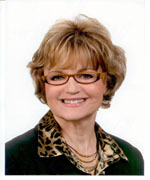Feasibility of Conducting a Music Therapy Study With Hospice Patients with Dementia & Agitation
DOI:
https://doi.org/10.15845/voices.v11i2.572Keywords:
Music therapy, agitation, dementia, bathing, caregivers, non-pharmacological intervention, hospiceAbstract
This study's purpose was to explore non-pharmacological means for decreasing agitation in hospice patients with late stage dementia administered by caregivers. Subjects in the study were patients on service with San Diego Hospice and the Institute for Palliative Medicine, diagnosed with late stage dementia, as determined by a FAST (Functional Assessment Staging) score of 7, and who were known to become agitated while performing certain tasks (e.g., bathing or eating). A music therapist assessed the subjects using an adaptation of the Music Therapy Assessment (Krout, 2000). The Short Portable Mental Status Questionnaire (SPMSQ) and Blessed Dementia Scale were administered pre- and post- intervention to assess cognitive functioning severity of dementia, respectively. Caregivers were trained to administer the Agitated Behavior Scale (ABS) after performing the stressful task without music (baseline). The music therapist created a CD for each subject based on the following: a) music background/preferences of subject (preferred styles of music, favorite selections or artists), obtained from family/caregiver, and b) subject responses observed during the assessment. Caregivers were instructed to complete the agitated task during the music intervention and immediately following the task completed an ABS evaluation. Out of the 51 patients referred for the study, 11 met inclusion criteria and were consented. Eight subjects completed the study. According to demographic information the majority of subjects were female, had previous music experience, and lived in a skilled nursing facility. The most frequent agitated task was bathing, which caused agitation in 75% of subjects. SPMSQ results indicated all patients had severe cognitive impairment and pre-/post-scores were the same. Pre-music intervention ABS scores were a mean of 23.46 (SD=5.8), and a mean of 20.69 (SD=7.1) for post-music intervention. This indicated that subjects became slightly less agitated overall though the effects were not statistically significant (t (7) = 1.41, p=0.2). Further analysis was unwarranted due to the lack of statistical significance and the small sample size. Two subjects demonstrated decreased agitation levels. Study limitations, implications for further research, and feasibility of research with late stage dementia patients receiving hospice care are discussed by the researchers.

Downloads
Additional Files
Published
How to Cite
Issue
Section
License
Articles published prior to 2019 are subject to the following license, see: https://voices.no/index.php/voices/copyright

